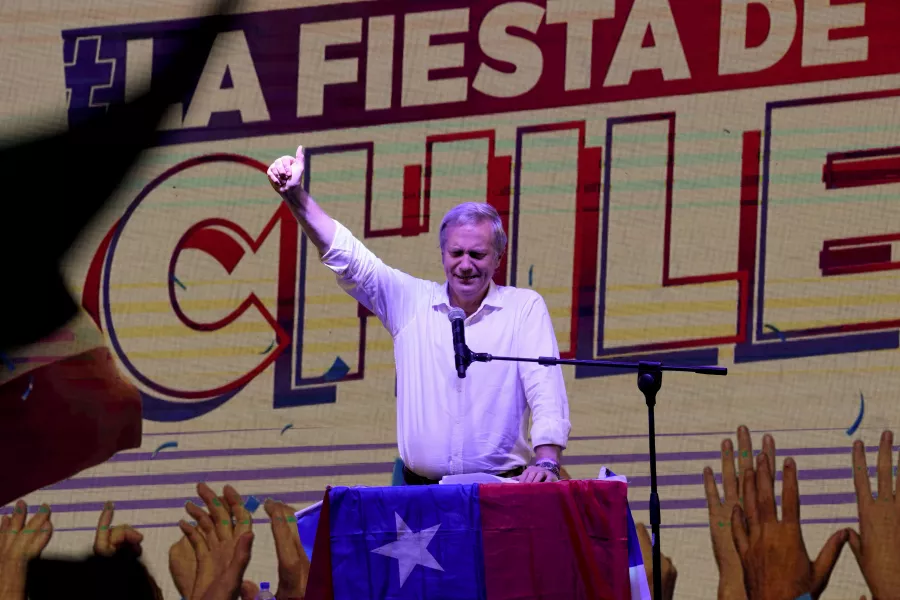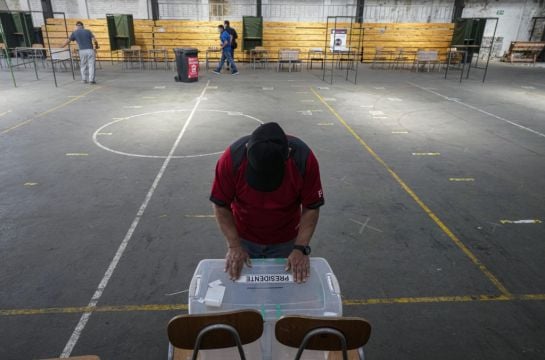Chileans are going to the polls on Sunday to elect their next president following a polarising campaign between a free-market firebrand likened to Donald Trump and a millennial former student protest leader who pledged to tackle inequality.
Jose Antonio Kast, a lawmaker who has a history of defending Chile’s past military dictatorship, finished ahead in the first round of voting last month but failed to secure a majority of votes.
That set up a head-to-head run-off against Gabriel Boric, who trailed him by about two percentage points.
Opinion polls in recent days consistently showed an advantage for Mr Boric, although sometimes within the margin of error, meaning the contest is likely to be decided by whichever candidate is able to energise his base while at the same time winning over the majority of voters who do not side with political extremes.
“Turnout will mean everything,” said Robert Funk, a political scientist at the University of Chile.

Mr Kast, 55, a devout Roman Catholic and father of nine, emerged from the far-right fringe after having won less than 8% of the vote in 2017.
He rose steadily in the polls this time with a divisive discourse emphasising conservative family values and playing on Chileans’ fears that a surge in migration — from Haiti and Venezuela — is driving crime.
A long-time lawmaker, he has a record of attacking Chile’s LGBTQ community and advocating more restrictive abortion laws. His brother, Miguel, was a top adviser to General Augusto Pinochet, the country’s former military leader.
Mr Boric, 35, would become Chile’s youngest modern president and was among several activists elected to Congress in 2014 after leading protests for higher quality education.

If elected, he said he will “bury” the neoliberal economic model left by Mr Pinochet and raise taxes on the “super rich” to expand social services, fight inequality and boost protections of the environment.
In recent days, both candidates tried to veer toward the centre ground.
“I’m not an extremist. … I don’t feel far right,” Mr Kast said even as he was dogged by revelations his German-born father had been a card-carrying member of Adolf Hitler’s Nazi party.
Meanwhile, Mr Boric, who is backed by a coalition of leftist parties that includes Chile’s Communist Party, brought more centrist advisers onto his team and promised that any changes would be gradual and fiscally responsible.
Whoever wins is likely to have a slim mandate and be hemmed in by a divided congress.







